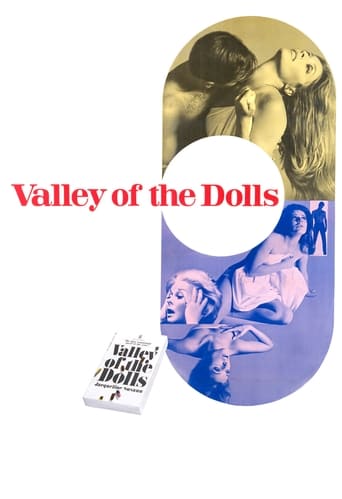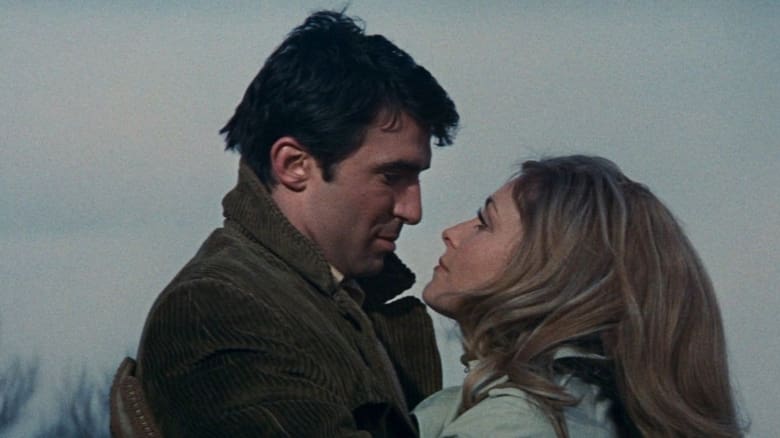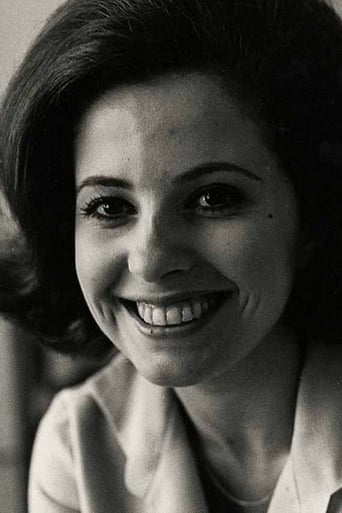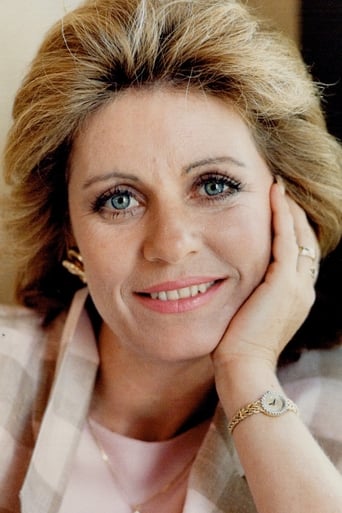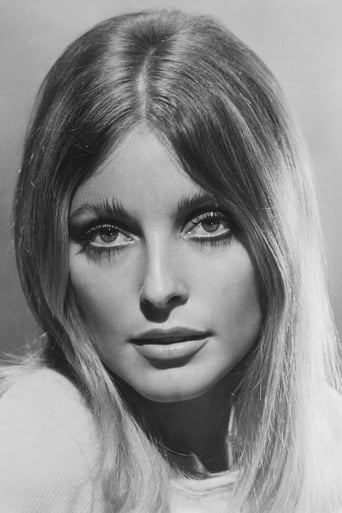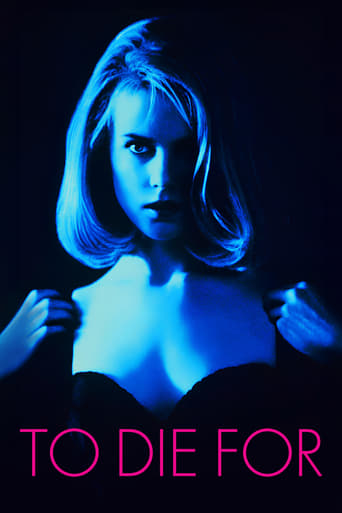Valley of the Dolls (1967)
In New York City, bright but naive New Englander Anne Welles becomes a secretary at a theatrical law firm, where she falls in love with attorney Lyon Burke. Anne befriends up-and-coming singer Neely O'Hara, whose dynamic talent threatens aging star Helen Lawson and beautiful but talentless actress Jennifer North. The women experience success and failure in love and work, leading to heartbreak, addiction and tragedy.
Watch Trailer
Free Trial Channels
Cast


Similar titles
Reviews
Most undeservingly overhyped movie of all time??
Excellent, a Must See
Just intense enough to provide a much-needed diversion, just lightweight enough to make you forget about it soon after it’s over. It’s not exactly “good,” per se, but it does what it sets out to do in terms of putting us on edge, which makes it … successful?
Not sure how, but this is easily one of the best movies all summer. Multiple levels of funny, never takes itself seriously, super colorful, and creative.
And very current, in 2018, after 51 years. Patty Duke is giving a great performance in this. Extremely beautiful Barbara Parkins and Sharon Tate, they are not even inferior. Under the subtle direction of Mark Robson, Paul Burke, Tony Scotti, Martin Milner, Charles Drake, Alexander Davion, Lee Grant, Susan Hayward, they are shining too. A successful film in the 1960s, which resists until today.
Released in 1967 and based on Jacqueline Susann's novel, "Valley of the Dolls" is a soap opera about the negative side of showbiz in the mid-60s. Barbara Parkins stars as the ingénue from small town New England who moves to New York City and swiftly lands a job as a secretary at theatrical agency that represents an arrogant, aging performer (Susan Hayward). Paul Burke plays the suave agency son who takes interest in her while Patty Duke appears as a feisty, talented upstart, the rival of Hayward's character. Sharon Tate plays a statuesque beauty with limited acting aptitude while the sharp Lee Grant and stud-ly Tony Scotti play a sister/brother team. The three main protagonists eventually resort to prescription drugs to relieve their stress, particularly the barbiturates Seconal & Nembutal and various stimulants, which are the eponymous "dolls." The first 25 minutes are great, showcasing wintery New England landscapes and several curvy beauties in the Broadway scene. You can't beat the authentic mid-60's ambiance reflected in everything and everyone. From there, however, the movie settles into a salacious cautionary tale that relies on sentimental twaddle and hints of steamy sex to compensate for a relatively un-compelling story. Fans of soap operas will no doubt enjoy it more than I did.People criticize the movie on the grounds that it's "campy," but this is inaccurate. "Valley" is a totally serious (melo)drama with the occasional overacted histrionics, but it's not campy. If you want camp, see the non-sequel "Beyond the Valley of the Dolls" (1970), which is a satire scripted by none other than Roger Ebert.In an interview Patty Duke said that director Mark Robson treated the female actors like unintelligent bimbos, particularly Sharon Tate. Interestingly, Judy Garland was originally slated to play the roll played by Hayward, but Robson fired Garland for ironically turning up drunk. Duke also said she and her pals would occasionally order pizza and have a "Valley of the Dolls" night where they'd make fun of the movie. Sadly, Sharon Tate would be dead less than two years after the film's release, murdered by the Manson wackos in Los Angeles on August 9, 1969. The movie drives home its message well: Beauty is fleeting, money does not bring true happiness, drugs & drink are a dead end and showbiz fame can be a bitter pill; but one CAN escape if one chooses. I also like how the movie switches from New York City to California at the midway point, which keeps things fresh. Lastly, the entertaining bathroom catfight between Hayward and Duke is worth the price of admission.The film runs 123 minutes and was shot in Redding Center & New Haven, Connecticut; Manhattan & Katonah, New York; and Santa Monica, Malibu & Los Angeles, California.GRADE: B-
Bleak indeed. The theme song gets right to the heart of the matter - 'I have to be where I belong. Have to know where I went wrong'. But is anybody listening? Neely O'Hara (Patty Duke) is the prefect example of what happens when delusion meets reality, calling on God as a last resort when her world shatters apart. Isn't that always the case with a lot of folks at the end of their rope? Partly due to time constraints and circumstances, this is one of the few movies I watched in installments, which wasn't so bad because the principal characters were too irritating to take all in one sitting. I can recall what a splash this film made following it's original release, the controversy following it lasted for quite a while, just as it did for the Jacqueline Susann novel on which it was based. It's a pretty safe bet I won't be hunting down that story any time soon.Even with all the booze, drugs and pills bringing their victims down in the picture, I still had to do a double take when I got a look at Anne Welles' (Barbara Parkins) prescription bottle - 'To be taken as needed'!! Well who determines that? Fortunately Anne made it through pretty much unscathed.Probably the best line of the picture came from Sharon Tate's character, Jennifer North - "All I know how to do is take off my clothes." I could probably launch into Tate's character here but in deference to her unfortunate demise at the hands of Charles Manson's gang, I'll restrain myself. Not so for Helen Lawson's (Susan Hayward) remark about Broadway to Neely O'Hara - it doesn't go in for booze and dope the way Neely does. Really??!! Who wrote that line? They must have been on booze and dope.Well now that I've finally been here and done that after all these decades, I can't say the experience wasn't worthwhile, because it was, in a dubious sort of way. Unlike most of the characters here, I can actually take Helen Lawson's advice on this one - "I'll go out the way I came in."
Among the most legendary of trashy movies, "Valley of the Dolls" is also compulsively entertaining. Anne Welles leaves the pristine snow-covered village of Lawrenceville for the savage Broadway jungle in Manhattan. Based on the lurid best-selling novel by Jacqueline Susann, the film chronicles the rise and fall of three young women: Welles, played by Barbara Parkins; Neely O'Hara, played by Patty Duke; and Jennifer North, played by Sharon Tate. Evidently, life is easy street in New York, at least at first, because opportunities are thrown at their feet; secretaries with scant shorthand skills become hair-spray models, mediocre singers become sensations, and women with bodies become stars of French art films.Reportedly a roman-a-clef drawn from well known show business personalities, "Valley of the Dolls" is glossy, big-budget nonsense from director Mark Robson, who previously directed such decent films as "Von Ryan's Express," "Peyton Place," and "The Bridges at Toko-ri." Perhaps Robson thought lightening would strike twice, and he could fashion another critical hit like "Peyton Place" from another trashy novel like Grace Metalious's 1950's scandalous best seller. However, "Valley of the Dolls" is no "Peyton Place." While Robson drew excellent performances from Lana Turner and a distinguished cast in his earlier soap opera, he unleashes his cast, and they go over the top in "Valley of the Dolls." Although directing three Oscar-winning actresses (Susan Hayward, Lee Grant, and Patty Duke), Robson let them chew the scenery shamelessly. While the bitchy performances provide guilty entertainment, they are often risible. Hayward is Helen Lawson, a tough Broadway veteran, who leaves no survivors; Hayward's badly staged musical number pits her against an out-of-control mobile, and her wig-pulling duel with Duke is justifiably famous for campy hilarity. Duke overplays the bitchiness throughout, and her final scene is a histrionic masterpiece of bad acting. The flashbacks of Duke in a sanitarium will have viewers rolling, especially when her toe cuts through a sheet. Only Lee Grant retains her dignity and under-plays a small, thankless role. Meanwhile, Sharon Tate is lovely, but wooden, and Barbara Parkins and Paul Burke do little with what little they are given by the script.The film's budget was obviously generous, and the now-dated 1960's fashions, make-up, and hair styles could be studied and copied for period films set in that decade. Also dated and offensive are repeated references to gays as queers, fags, and faggots; but, in fairness, the all-white cast lacks other minorities to denigrate. Except for the title song sung by Dionne Warwick, the tunes are instantly forgettable, although a duet between recovering addict Duke and wheel-chair bound Tony Scotti is like something out of "Airplane." The dialogue is either intentionally or unintentionally funny at times, and the use of "dolls" to refer to pills sounds forced. Although Robson likely entertained fantasies of producing another soap opera masterpiece on the order of "Peyton Place" or "Imitation of Life," he instead left a camp classic that is a guilty pleasure for many.

